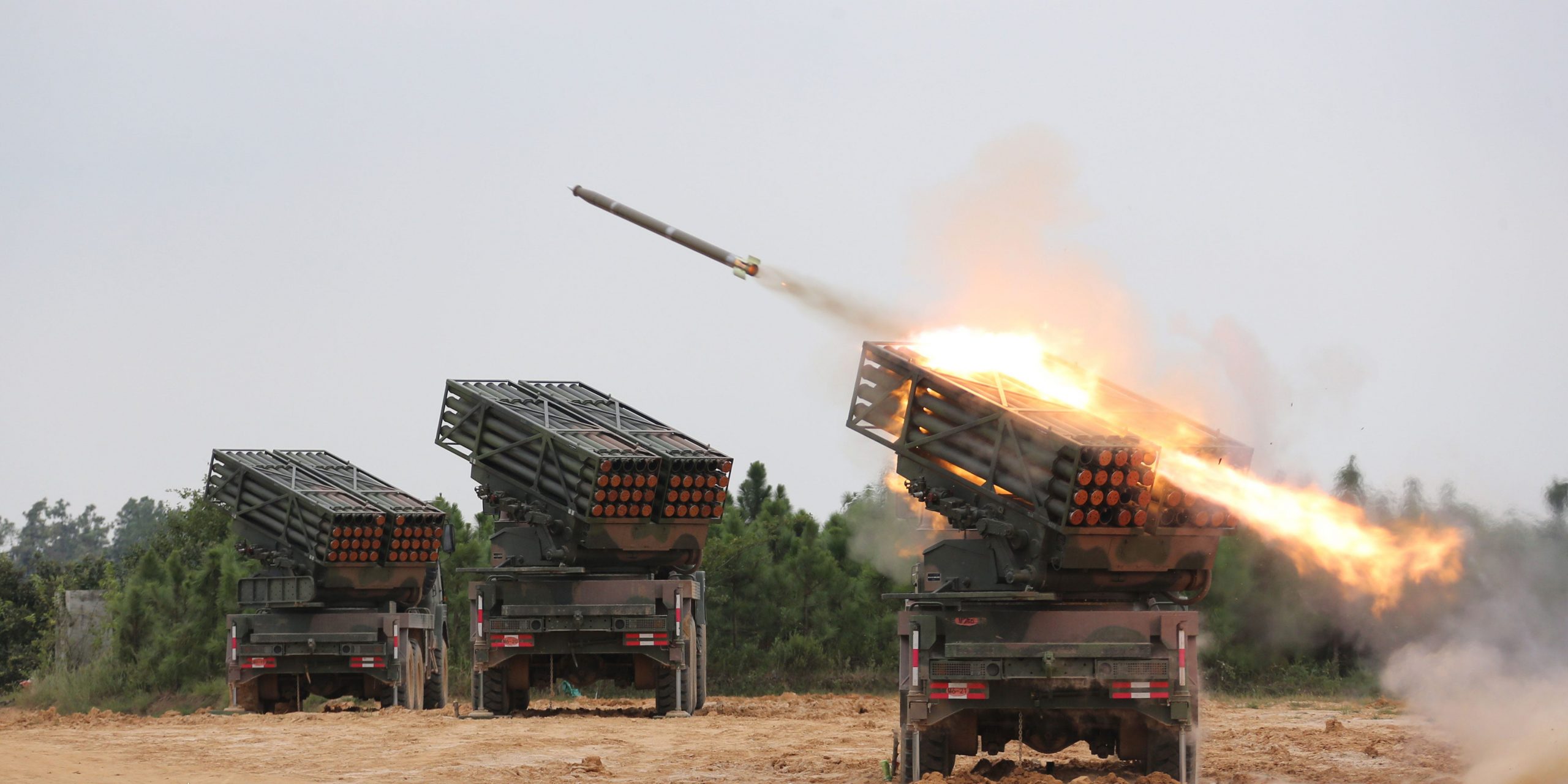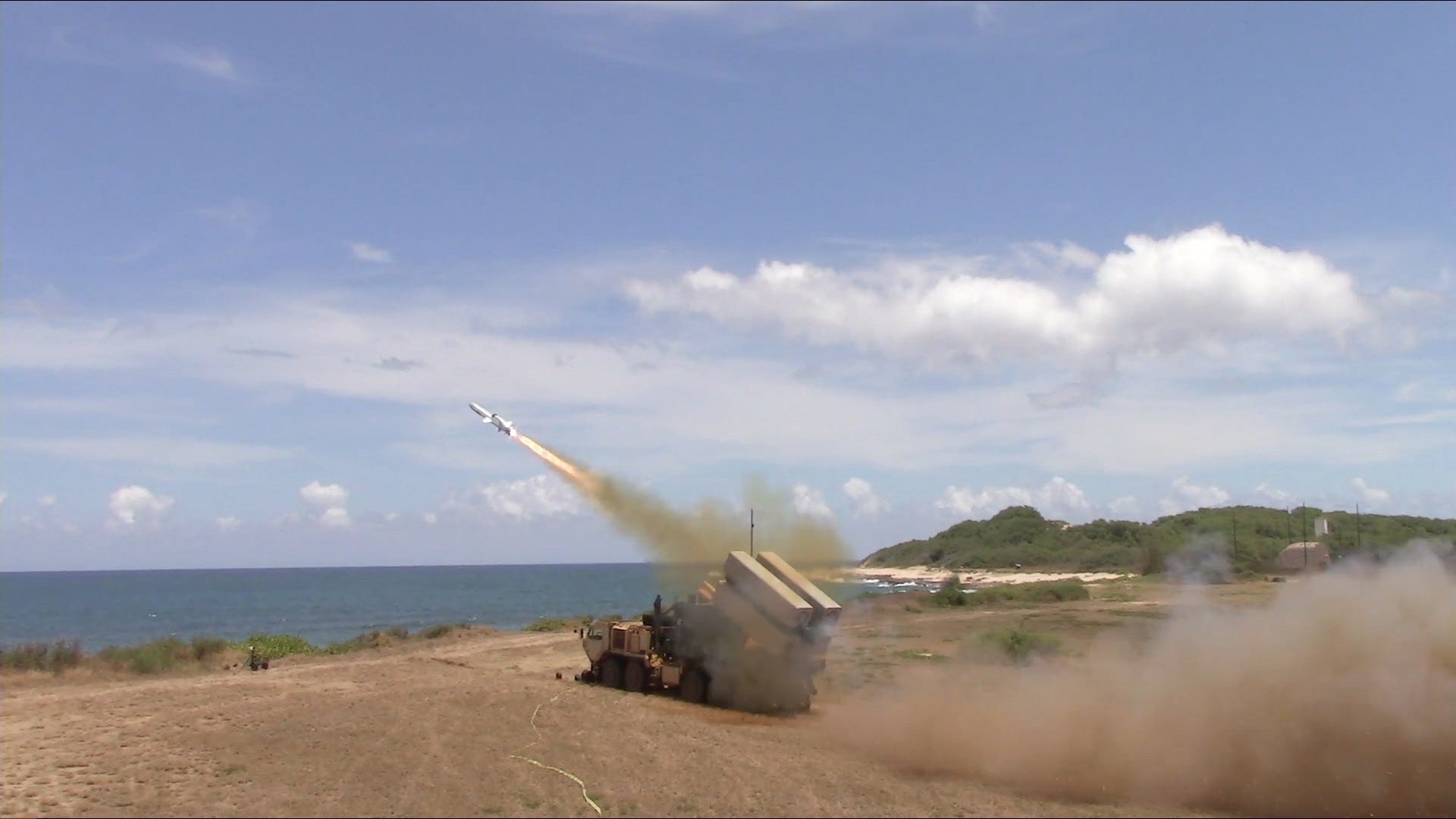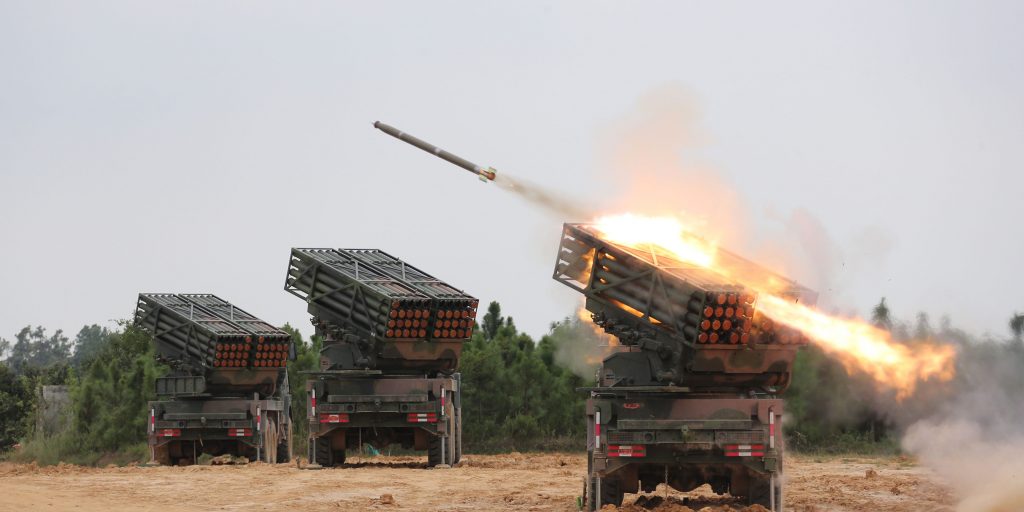
Chinese Ministry of Defense
- China's military has been practicing striking maritime targets with rockets and anti-tank missiles.
- A company commander told state media that these systems are "highly deadly to maritime targets."
- The US has also been looking at how to use ground forces to strike and maritime targets.
- See more stories on Insider's business page.
The Chinese People's Liberation Army has been conducting live-fire exercises focused on engaging targets at sea with traditional ground combat systems, such as rocket artillery and anti-tank missiles, according to Chinese media.
A brigade with the PLA 80th Group Army recently used PHL-03 long-range multiple rocket launcher systems with a maximum range of up to about 80 miles to fire on various maritime targets, state-affiliated Global Times reported this week, citing state-run broadcaster China Central Television.
The army used long-range drones to conduct reconnaissance in support of the artillery strikes against the sea-based targets, some of which were reportedly mobile.
Capt. Li Yu, a company commander, said that "troops tested multiple tactics and conducted combined strikes on targets, as the exercise further validated these methods and showed long-range multiple rockets are highly deadly to maritime targets," according to Chinese media.
The Global Times, citing state-run Xinhua News Agency, reported that in another exercise, service members from the PLA Army Academy of Artillery and Air Defense used HJ-10 anti-tank weapons against maritime targets in the Yellow Sea.
Chinese military experts told the outlet that the army "showed that they are versatile and can also play roles in anti-ship missions" and that the army can join other services in "joint area denial tasks against hostile warships should they provoke close to China."
The experts argued that these capabilities could also be used to counter an amphibious assault.
The nature of the Asia-Pacific region tends to lead militaries to put greater emphasis on naval combat capability, but in recent years, there has been increased interest in how ground forces can support navies and other elements of the larger joint force and do battle with enemy ships.
This has been an important area of research, development, and also experimentation for the US military, which has been looking for options to shatter anti-access/area-denial capabilities with standoff weaponry across the armed forces.

US Army
In 2018, the US Army successfully fired a Naval Strike Missile from a Palletized Load System truck, striking a decommissioned ship during the Rim of the Pacific exercise in a first for the service.
The next year, Mark Esper, then the secretary of the Army, suggested that a long-range strategic cannon the Army is interested in could punch holes in Chinese defenses at sea, helping clear the way for the US Navy from positions ashore.
"You can imagine a scenario where the Navy feels that it cannot get into the South China Sea because of Chinese naval vessels or whatever" he explained. "We can - from a fixed location, on an island or some other place - engage enemy targets, naval targets, at great distances."
The US Army has also been pursuing a combat capability known as the Land-Based Anti-Ship Missile that would allow it to go after maritime targets.
More recently, the US Marine Corps fired a missile from its Navy Marine Expeditionary Ship Interdiction System (NMESIS), a combination of a naval strike missile and an unmanned Joint Light Tactical Vehicle known as a Remotely Operated Ground Unit Expeditionary (ROGUE) fires vehicle, and sank a mobile surface target at sea.
"Now, we can move this around on vessels or put it ashore and hold an adversary's navy at risk," Gen. David Berger, commandant of the Marine Corps, told lawmakers in April, adding that this kind of capability allows the US military to "ensure that the lines on the sea are kept open."
NMESIS is one of several lines of effort the Marine Corps has been looking into for engaging maritime threats, something the Corps has begun to prioritize.
The Marine Corps commandant stressed to members of Congress last year that an effective ground-based anti-ship capability "will enhance the lethality of our naval forces and will help to deny our adversaries the use of key maritime terrain."

